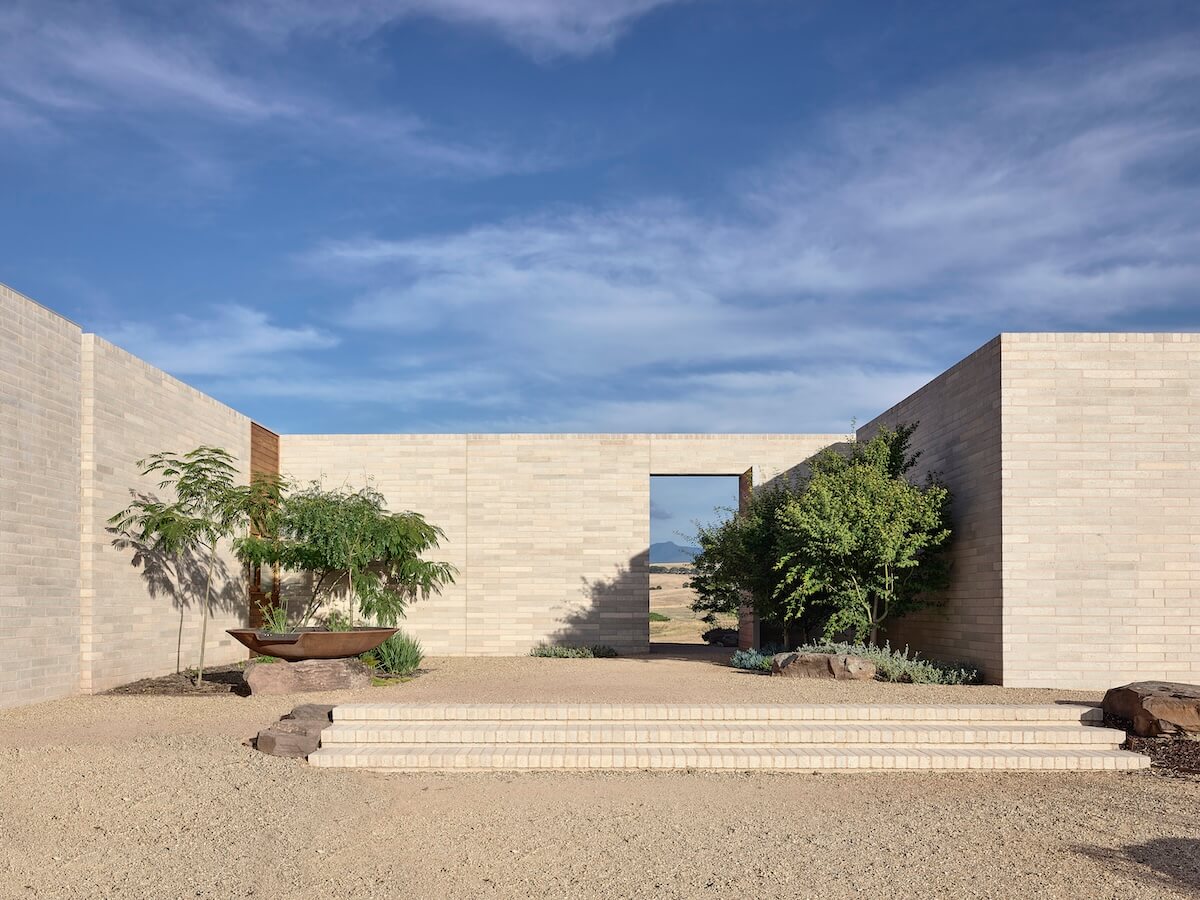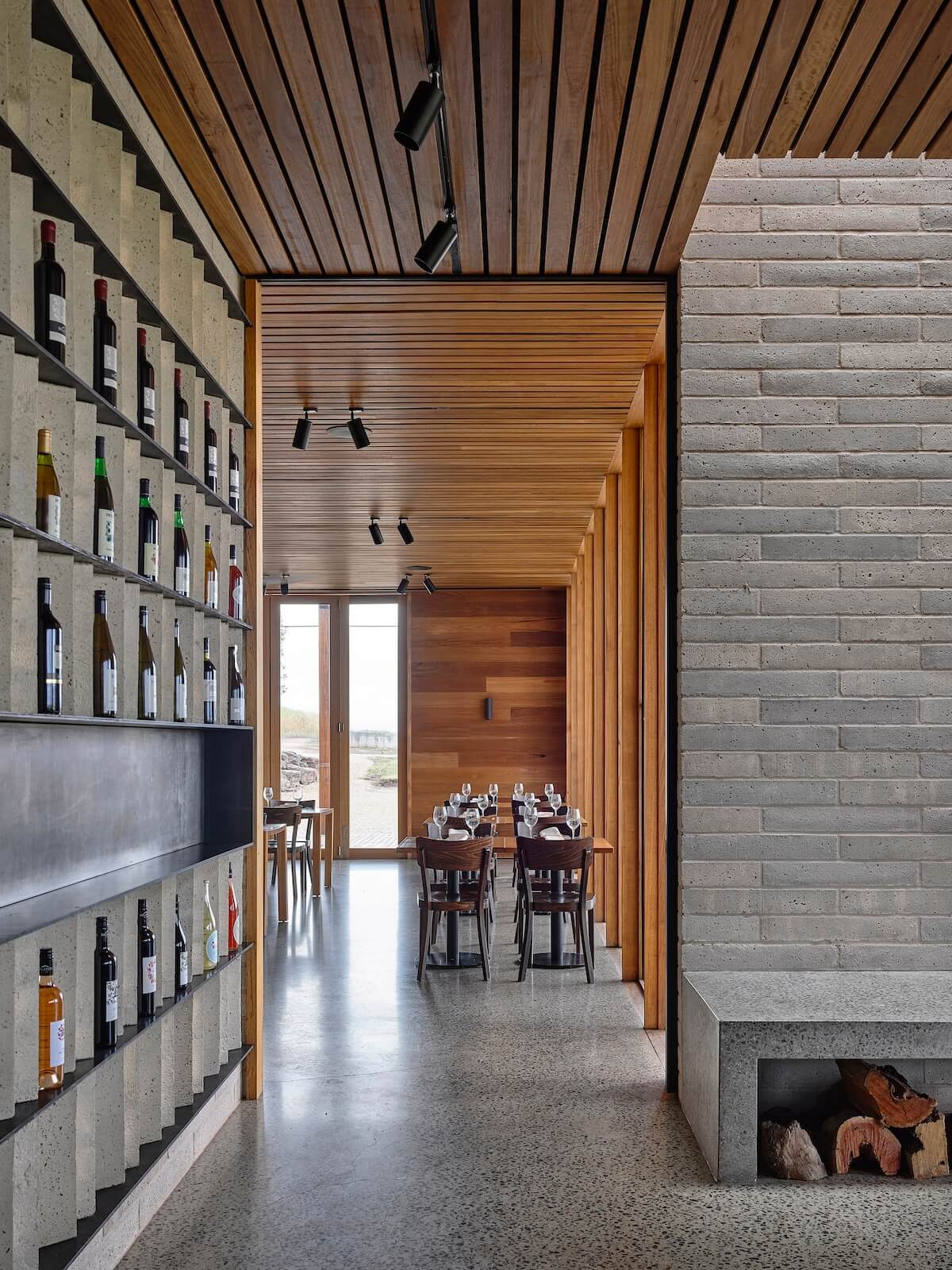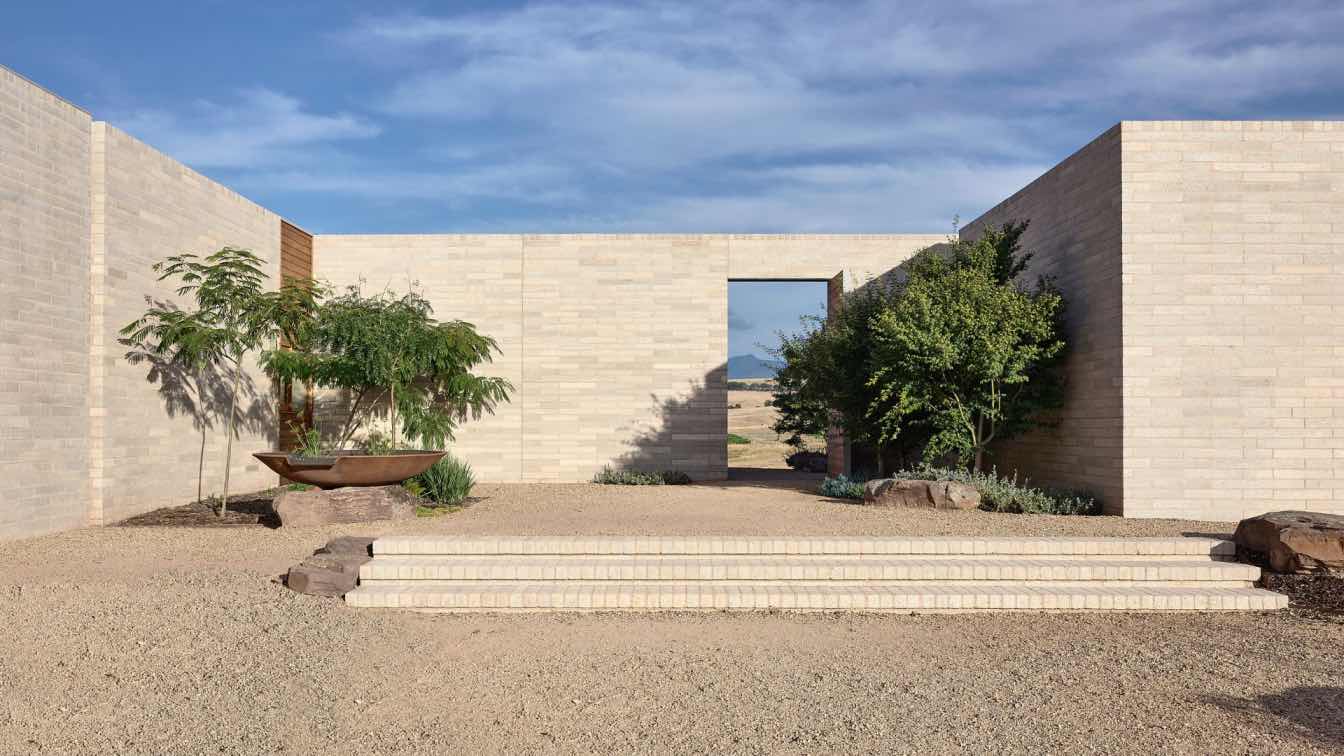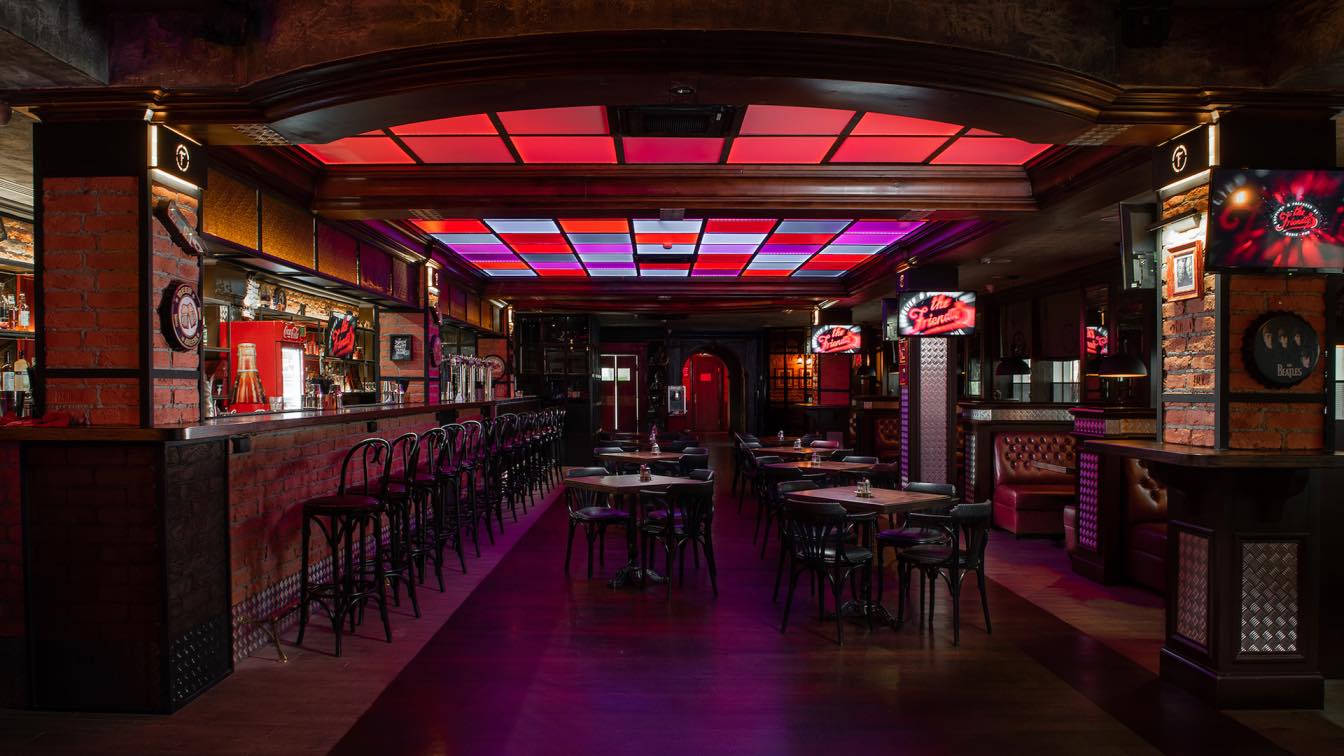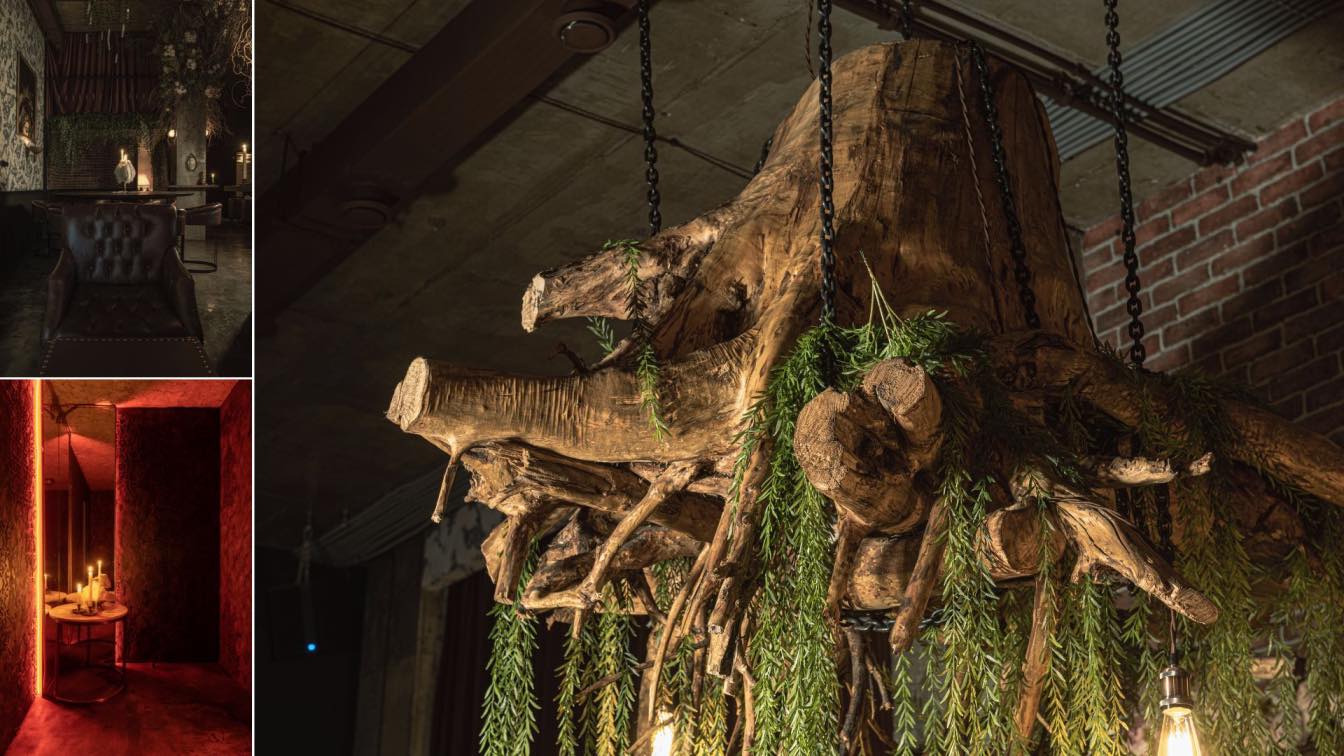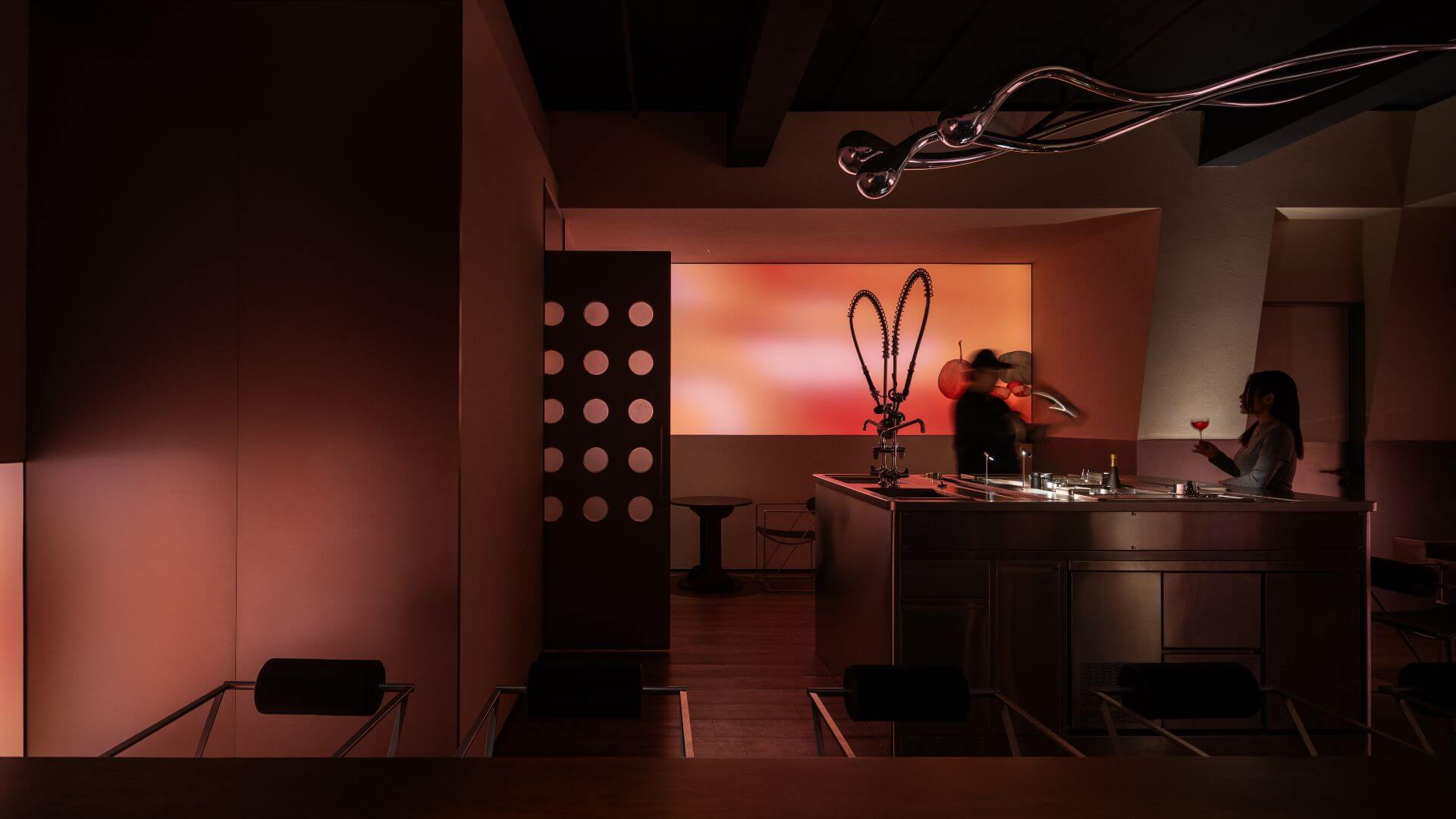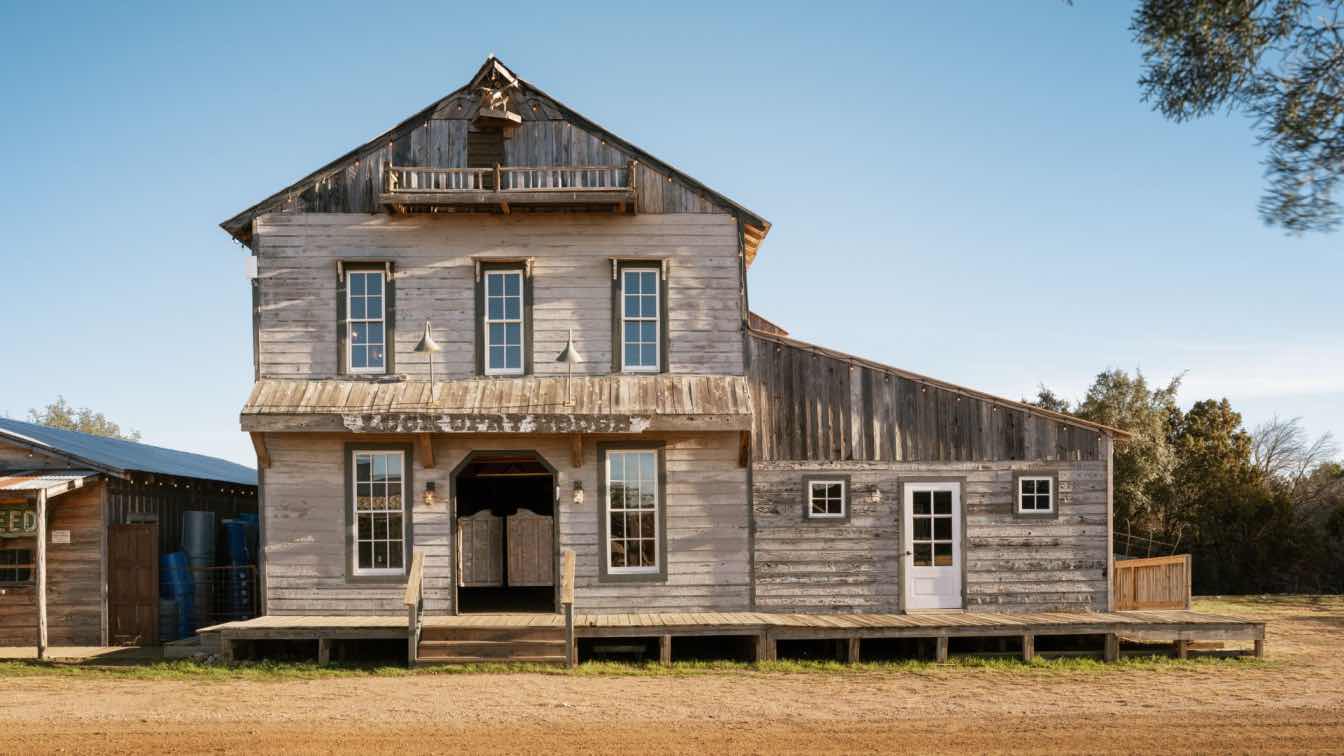Lucy Clemenger Architects: With sweeping views across Taungurung Country, the Delatite Cellar Door provides a unique wine tasting and dining experience located in the foothills of the Victorian Alps. The building utilises environmentally sustainable design principles and reflects the warmth and generosity of Delatite’s owners in a new commercial setting.
Delatite are committed to sustainability via their biodynamic farming and wine production practices and aim to minimise their impact on the natural environment. The building is designed to showcase Delatite’s wines and accommodate a multitude of experiences including festivals, markets, vineyard tours, dining, and private events.
The site affords wonderful panoramic views towards Mount Buller, the High Country, and surrounding farmland. Stretched out along the ridgeline, the building is a series of interconnected pavilions surrounded by expansive decks, terraces, and courtyards. Timbercrete blade walls extend into the landscape with curated openings allowing glimpses through and across the building and surrounding vines. Horizontal timber lining references the construction of local cattlemen’s huts and wraps the building in a rich textural warmth. The architecture provides an impression of monumentality. In contrast, the interior spaces have a domestic quality, evoking family gathering and hospitality.
The material palette draws upon the deep hues of the Howqua River and the rugged high-country bushland. Inspired by the everchanging vineyard the deep green tasting bar reflects the verdant tint of Delatite’s Riesling, and the burgundy tones of the dining room mimic the cool climate wines. Steel details are a nod to the once notorious bushranger.
The brief for the building included a tasting bar, retail space, commercial kitchen and small dining room, outdoor decks, landscaped terraces, amenities, wood storage, back of house areas and storage.

Who are the clients and what's interesting about them?
In 1967 Robert Ritchie, went on a ski holiday at Mt Buller, with Jim Irvine, “The Master Merlot Maker”, from the Barossa Valley. Twelve months later, 500 vine sticks were left at the bottom of their drive. His wife Vivienne planted their first vineyard in the Spring of 1968.
In 1982 Delatite built a small Cellar Door and winery, and by the end of 2019 they had outgrown the original Cellar Door. Victoria’s food and wine culture was booming and Delatite understood the opportunity to become a premier destination Cellar Door.
Today the winery is run by David Ritchie, with the assistance of the hard working and innovative winemaker, Andy Browning. Over the generations of farming at Delatite there has been a growing awareness that their practices should be guided by what is best for future generations. In the vineyard the Delatite team follows Rudolf Steiner’s Biodynamic principles, and they believe in growing grapes and making wine in as natural a way as possible with minimal intervention/additions. The only fertilisers used are reactive rock phosphate, fish/kelp/fulvic acid, BD 500, cow and sheep manure concentrate and compost teas. No herbicides, insecticides or systemic/curative fungicides are used – the only vine sprays are wettable sulphur, copper and Bacillus thuringiensis. The wines are vegan friendly and made in small batches. Most of the red wines are bottled with minimal or no filtration.
The aim of both the viticulture and making teams is to produce very individual wines with great structure and complexity that will also age extremely well, be exceptional partners to a variety of foods, and be very nice to drink!
This dedication to quality and integrity in both the vineyard and winery is also evident in the many awards the winery has received over the years.

